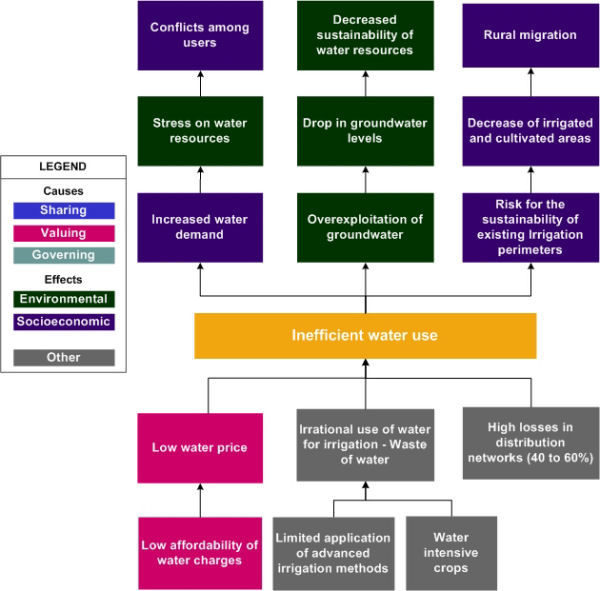Due to its relative abundance of water resources and its strategic importance, the Oum Er Rbia (OER) Hydraulic Basin has been the focus of important investments on hydraulic infrastructure. However, the region still faces significant water management challenges, related to environmental sustainability and the availability of water, in terms of both quantity and quality. To mitigate the increasingly important water stress issues, several actions have been planned and implemented by the State, such as measures to regulate water flow, the development of an extended irrigation network, inter-basin transfers to large cities and the engagement in a National Debate on water-related issues.
However, there are still technical and management issues that need to be addressed, such as groundwater overexploitation due to overpumping and to the reduction in precipitation, water quality deterioration, inefficient and wasteful water use and flood protection. As most available resources have already been exploited, present water management efforts focus primarily on demand management; losses in irrigation distribution networks currently amount to 20% of water supply delivered, and efficiency in crop irrigation does not exceed 50%. Furthermore, it is estimated that only 10% of irrigated areas are presently equipped with advanced irrigation systems. Although domestic demand corresponds to a rather small amount of the total water use, losses in distribution networks are equally important, amounting to 35%. In the above context, the initiative undertaken by INECO aims at establishing a discussion forum with all parties on measures and actions that can support a shift towards better informed and efficient water use, especially in agricultural and irrigation practices.
A tentative mapping of the causes and effects to inefficient water use in the agricultural sector is provided in the Figure below.
